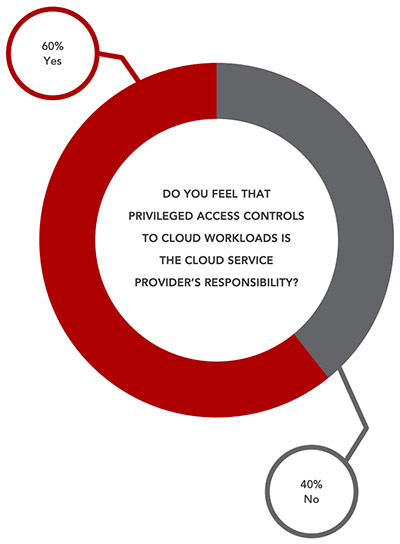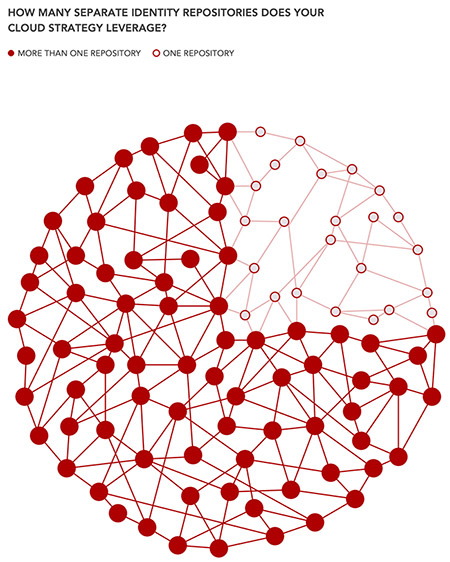60% of organizations misunderstand the shared responsibility model for cloud security and incorrectly believe the cloud provider is responsible for securing privileged access, according to Centrify.

Securing cloud migration projects
Furthermore, organizations are not employing a common security model or enforcing least privilege access to reduce risk, and the majority list security as their main challenge with cloud migrations.
The cloud’s availability, accessibility, scalability, and speed of delivery make it an attractive option to deliver IT services more efficiently and affordably. However, securing multi-cloud and hybrid environments creates an unfamiliar situation, in which organizations are unsure of who is responsible for controlling privileged access.
Key survey findings
As a result, many organizations secure cloud and hybrid environments differently than they do on-premises, when a common security model is best practice.
The survey found that:
- 68% of organizations are not implementing Privileged Access Management (PAM) best practices to control access to cloud environments
- 60% of respondents view security as the leading challenge when it comes to cloud migration projects
- 76% are using more than one identity directory in their cloud strategy, which puts them at risk of “identity sprawl” and unsecured cloud attack surfaces
“As the enterprise threatscape expands, organizations are faced with new challenges to secure modern attack surfaces, and this report makes it clear that the cloud is no exception,” said Tim Steinkopf, CEO of Centrify.

“We know that 80% of data breaches involve privileged access abuse, so it’s critical that organizations understand what they are responsible for when it comes to cloud security, and take a least privilege approach to controlling privileged access to cloud environments. Too much access and privilege puts their workloads and data at risk.”
Security
via https://www.aiupnow.com
Help Net Security, Khareem Sudlow
